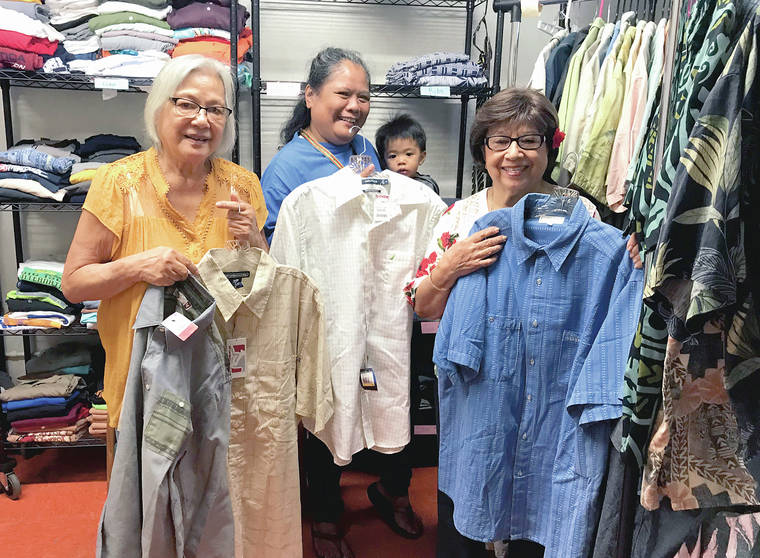More than two months after accepting its first clients, Keolahou — an emergency homeless shelter established at the old Hilo Memorial Hospital — is a refuge for the Big Island’s homeless men.
Since October, 46 individuals have been served, and the shelter, which currently has 25 available beds, has an average occupancy of 22.
Three people who have been in the shelter have been placed in permanent housing.
Keolahou is a collaboration between the state, county, Hope Services Hawaii and other community partners.
“I recently met a young man at Keolahou who had been living on the streets, and then in the camp behind Agasa Furniture,” Hope Services CEO Brandee Menino said in an email provided by the organization. “When the camp was swept (on Nov. 21), he came to stay at Keolahou. The next time I saw him was at our (recent) client holiday party and resource fair. … He told me he was moving into housing the next day!
“When our community comes together to show aloha to our most vulnerable neighbors, the impacts are profound.”
Efforts to convert the former and aging hospital, located near Rainbow Falls, into a shelter began earlier this year after Hawaii County was awarded $2.5 million in Ohana Zone funding from the state for the project.
In 2018, state legislators appropriated $30 million to establish at least three Ohana Zone sites on Oahu, and one each on Hawaii Island, Maui and Kauai.
The law requires that Ohana Zones be placed on state and county land and that those spaces provide services to assist homeless individuals and families to access permanent housing.
The shelter will eventually have 50 beds.
“Our target date for increasing the shelter capacity to 50 depends on the completion of repairs and improvements by the county,” Kristen Alice, director of community relations for Hope Services, said in an email. “We knew we wouldn’t be able to open at our full capacity immediately, but wanted to serve those we could as soon as possible, which is why we made the decision to open with 25 cots in October.”
In the second phase of the Keolahou project, office space on the second level of the building will be converted to “permanent supportive housing” for chronically homeless.
Alice said Keolahou has been partnering with various organizations to offer services to clients, including legal help, medical care, a computer work station, food pantry, clothing bank and barber shop.
“Medical care is especially critical, as we have beds reserved for those who are discharged from Hilo Medical Center but have no place to recover,” she said. “We are grateful for the donors, volunteers and partners who make this full suite of services possible, and we know that our participants appreciate it, too.”
Email Stephanie Salmons at ssalmons@hawaiitribune-herald.com.



